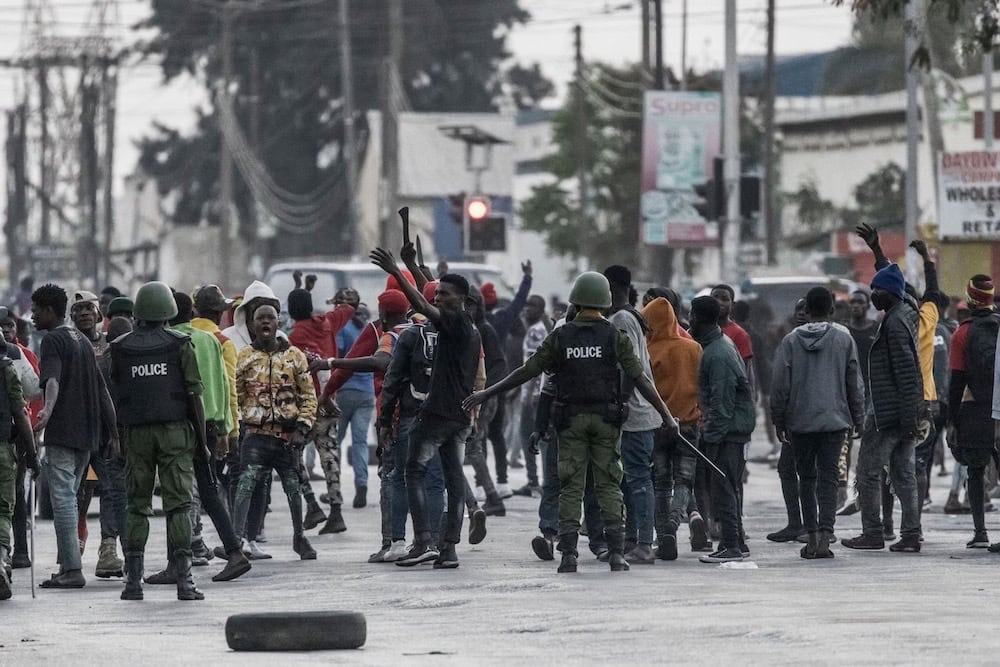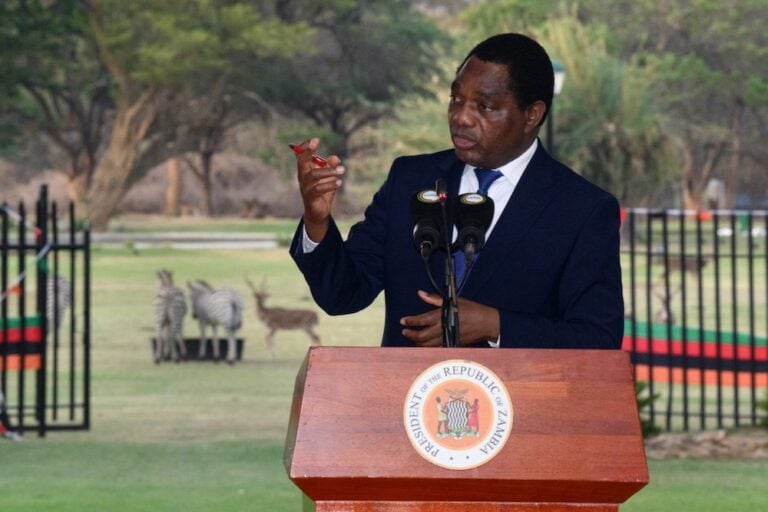Contradictory reasons given by Zambia police spokesperson for detention of broadcast journalists Rodgers Mwiimba and Innocent Phiri.
This statement was originally published on cpj.org on 22 April 2024.
The Committee to Protect Journalists on Monday called on Zambian authorities to thoroughly investigate a police assault on journalist Rodgers Mwiimba and his two-hour detention, alongside a second journalist, Innocent Phiri.
On April 13, police officers arrested the two television journalists at Matanda Grounds, a public space in the town of Kafue, about 40 kilometers (25 miles) south of the capital, Lusaka, where the opposition United Kwacha Alliance planned to hold a political rally, according to news reports and the two journalists, who spoke with CPJ. Authorities banned the rally on the grounds that the recently formed opposition coalition was not registered.
Mwiimba and Phiri, who work with the privately owned Millennium TV and KBN TV respectively, told CPJ that they were filming an altercation between police officers and two opposition party leaders on their phones when about three other officers grabbed Phiri, and forced him into an armored police vehicle.
Mwiimba said that four other officers confronted him, kicked him to the ground, and bundled him into the same vehicle, even though he showed them his Millennium TV employee ID card to prove that he was a journalist.
“I was traumatized. I have never experienced anything like this before,” Mwiimba said via messaging app. “They kicked me all over my body. One police officer even stepped on me for just trying to collect news.”
Mwiimba and Phiri told CPJ that they were taken to Kafue Police Station, where they were questioned on suspicion of conduct likely to breach the peace and an officer ordered them to delete the footage shot at Matanda Grounds from their phones. The journalists said they were released without charge about two hours later.
“In reporting on the activities of the opposition, Rodgers Mwiimba and Innocent Phiri were fulfilling their duties as journalists and the police should never have harassed or acted violently towards them,” said CPJ Africa Program Coordinator Muthoki Mumo, in Nairobi. “Zambian authorities should investigate why and how these journalists were arrested. If the officers involved are found guilty of misconduct, they should be held to account to send a warning to others that Zambia does not tolerate attacks on the press.”
Mwiimba told CPJ that although his body ached, his injuries were not severe enough to require medical treatment.
Police spokesperson Rae Hamoonga said in a statement that the journalists were arrested for filming and conducting interviews with two politicians in “the venue for the intended UKA rally, which was not lawfully sanctioned.” The politicians were also arrested, he said.
Hamoonga told CPJ via messaging app on April 13 that the journalists were arrested for crossing a police cordon. Hamoonga said he was not aware that Mwiimba was assaulted or that the journalists were forced to delete their footage at the station and promised to “check and revert.” As of April 22, Hamoonga had not provided additional comment to CPJ.
In 2022, Phiri and another journalist were arrested for filming police officers preparing to arrest an opposition leader and detained for 21 hours. They were freed after signing a document admitting that they were guilty of disorderly conduct and paying a small fine.
Press freedom is constitutionally guaranteed in Zambia but state-owned outlets usually support the government, police have arrested journalists for reporting critical stories, and political activists have attacked reporters.



